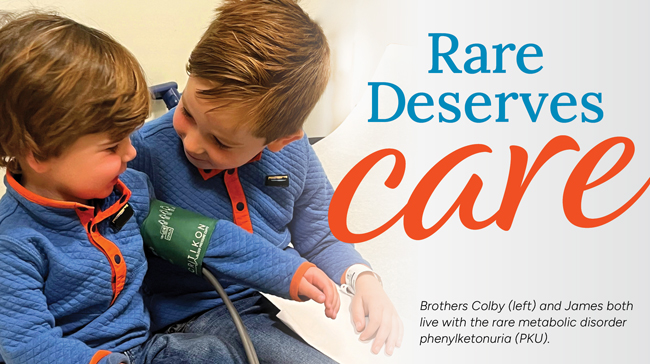 Earlier this week, I attended a listening session with the Commissioner of the FDA, Dr. Robert M. Califf. As a new employee in the NORD Policy Office, this was my first meeting at the FDA, and as such I was unsure of what to expect. What I found were dedicated individuals wrestling with the complexities of issues near and dear to the hearts of millions of patients across the country. These sessions provide a venue for advocacy groups to communicate their concerns pertaining to the FDA directly to its leadership. This concept seems simple, if not obvious, yet is often overlooked. The FDA is a critical partner for rare disease patient groups, and keeping a consistent dialogue with the agency is vital.
Earlier this week, I attended a listening session with the Commissioner of the FDA, Dr. Robert M. Califf. As a new employee in the NORD Policy Office, this was my first meeting at the FDA, and as such I was unsure of what to expect. What I found were dedicated individuals wrestling with the complexities of issues near and dear to the hearts of millions of patients across the country. These sessions provide a venue for advocacy groups to communicate their concerns pertaining to the FDA directly to its leadership. This concept seems simple, if not obvious, yet is often overlooked. The FDA is a critical partner for rare disease patient groups, and keeping a consistent dialogue with the agency is vital.
During NORD’s assigned time to speak, Paul Melmeyer, our Associate Director of Public Policy, elaborated on opportunities for the FDA to improve the situation of many in the rare disease community. First he talked about the need to improve patient engagement at the FDA by creating an Office of Patient Affairs at the same level as the Office of Women’s Health, that can report straight to the Commissioner. Currently there are a multitude of patient engagement initiatives at the FDA; some of which are run out of the Patient Liaison Program (PLP), which is underneath the Office of External Affairs (OEA). The PLP does a lot of great work, but the scope of its mission is so vast that it deserves an office entirely of its own. Additionally, given its location, few people in the rare community even know of its existence. With an agency as immense as the FDA, there is a need for a prominently displayed office to coordinate various and expanding patient engagement efforts, so that patients and advocacy groups alike need only look in one place.
Further, Paul spoke to the need for more resources for the Office of Orphan Product Development, and for the creation of natural history data registries (programs that collect data on disease progression in real time). NORD recently has been fortunate enough to partner with the FDA in creating natural history data registries, yet the program could and should be expanded. Natural history data registries are an important tool in drug testing and development.
Finally, Paul spoke to the need for the consistent use of flexible review of orphan drugs across individual divisions within the FDA. While the FDA appropriately uses flexible review for the vast majority of orphan products, it does not use it in every case. This then creates inequalities in orphan drug review, and possibly disincentivizes development in certain disease areas.
The meeting ended with a conversation about how smaller organizations can better engage with the FDA. Commissioner Califf expressed a concern that a patient organization’s success may too often be predicated on its size. Paul responded by suggesting that the FDA could help by making it easier for smaller patient organizations to connect with the agency and navigate the system.
All in all, as I sat watching the exchange unfold, I could not help but be struck by the level of proficiency and captivation in the room. Simply put, I was impressed. Unsurprisingly, there is nothing flashy to report about this kind of government agency meeting, and yet this is where the real action occurs. Awareness is generated, ideas are hatched, and compromises are made. I personally am grateful to have been included, and happy that NORD could contribute to the conversation. NORD looks forward to following up on these topics as we head into 2017, and I look forward to attending more meetings in the months to come.



